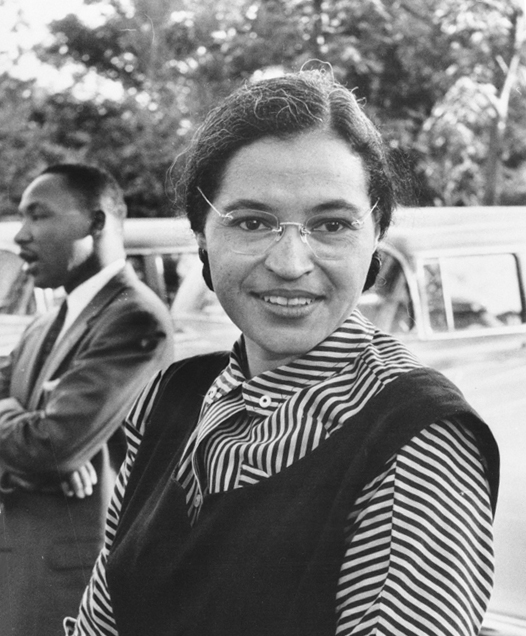The Labor Network for Sustainability is hosting this year’s Transit Equity Day on Friday, February 4th. On this day, we celebrate the birthday of Rosa Parks, who in 1955 refused to give up her bus seat for a White passenger, sparking widespread bus boycotts and becoming a symbol of the Civil Rights movement. The Labor Network for Sustainability reminds us that “Public Transit provides basic mobility for many in our communities. It is also essential urban infrastructure – just like roads, bridges, tunnels and utilities – that is crucial to the economic, social and environmental well-being of all our regions.” In other words, transportation is freedom.

This year, there are many ways to commemorate Transit Equity Day:
- LOCAL: Join Transportation Choices Coalition’s Transit Equity Day Action Hour to send letters to legislators and organize our friends, colleagues, and communities to join in.
- Register to attend in-person and virtual events and actions across the United States.
- Tell your Bus Driver Appreciation Story to help provide real-life examples of how public transit makes a difference in your community.
- Learn more about this history of Transit Equity Day in the Organizing Toolkit provided by the Labor Network for Sustainability.
- Help amplify Transit Equity Day on social media.
Transit Equity Day Principles:
Everyone has a right to a public mass transit system that includes:
- Safe, reliable, environmentally-sustainable and affordable transit that is accessible to all, regardless of income, national origin, race, gender identity, sexual orientation, age, religion, or ability.
- An affordable public transit system that reliably connects people in all communities to the places we need to travel: home, work, school, places of worship, shopping, health, and recreation, in as efficient, and timely a manner as possible. We must ensure that all communities have access to transit; no community should be left behind. Public transit in rural, less densely populated communities should be provided in any master transportation plan despite the special challenges that may present.
- Living wages, benefits, safe working conditions, and union rights for transit workers, including those who manufacture transit equipment, and access to family-sustaining transit jobs and training opportunities for people from underserved communities.
- A just transition for workers and communities who are dependent on our current automobile and highway-centered transportation system, to ensure that no one is left behind as we transition to a more public, accessible, and cleaner transit-based system.
- Rapid transition of our transit systems to electrified, non-polluting transit powered by electricity from renewables. This transition should be made for school buses also.
- Safe, healthy and livable neighborhoods that are connected by public transportation and by bicycle pathways and sidewalks, and that are planned to expand safe access to transit and reduce single occupancy vehicle miles traveled.
- Dedicated and sustainable public funding for public transit.
